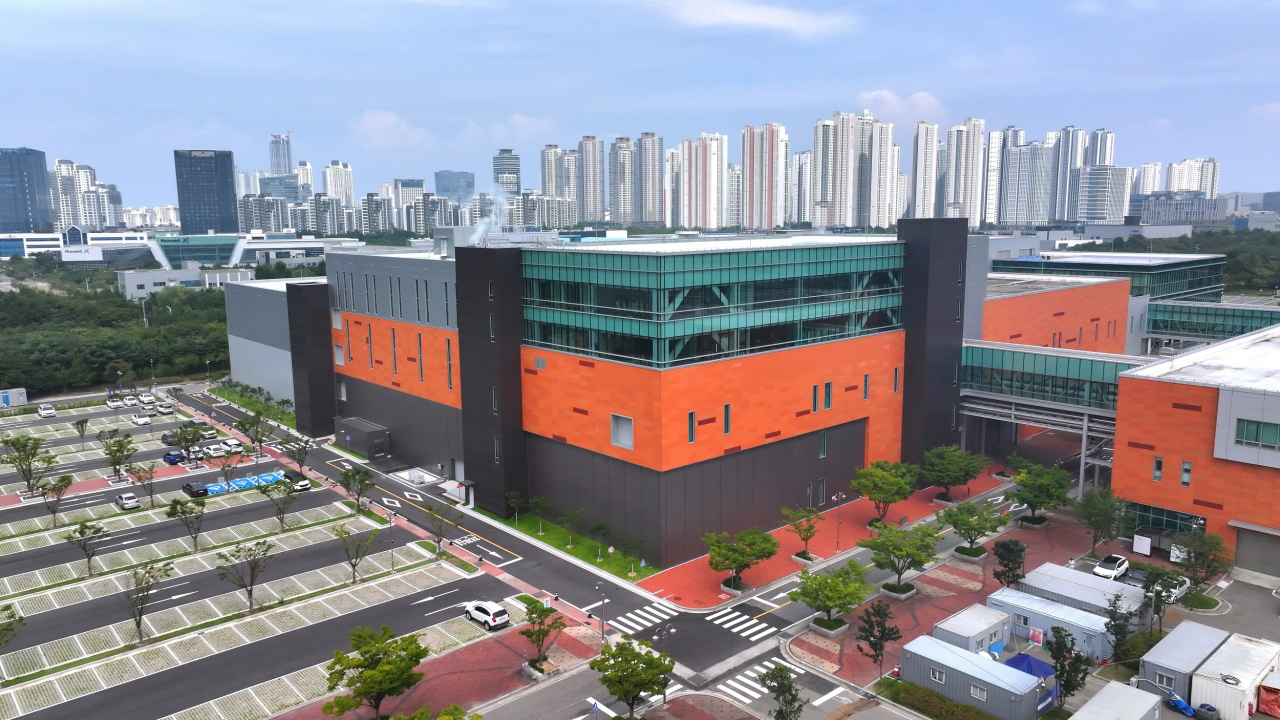
 |
| Celltrion's third plant in Songdo, Incheon. (Celltrion) |
South Korean biopharmaceutical firm Celltrion announced Thursday that its third plant in Songdo, Incheon, has officially commenced commercial production, following the completion of a performance qualification test.
The five-story facility, spanning 22,300 square meters, was built between 2021 and 2023 with an investment of 270 billion won ($190 million). With a production capacity of 60,000 liters, the new plant boosts Celltrion’s total biopharmaceutical manufacturing capacity to 250,000 liters when combined with its first plant’s 100,000-liter and second plant’s 90,000-liter capacities.
Celltrion stated that the third plant focuses on small-batch production of multiple drug substances for its products, enabling the company to respond quickly to market demands and changes. The company also aims to maximize cost efficiency through high-titer technology, which increases output from the same volume of culture medium.
The facility is equipped with eight 7,500-liter bioreactors, new cell-culturing processes to shorten cell growth stages and advanced automation technologies to enhance production flexibility and efficiency, according to the company.
With the third plant now operational, Celltrion plans to accelerate the production of its new biosimilars and pipeline products, which are gaining regulatory approvals in major overseas markets. The company will continue commercial production of existing products at its first two plants while leveraging the third plant for current and developmental products to maximize efficiency and synergy.
“Launching commercial production at the third plant marks the beginning of a new era for Celltrion’s 250,000-liter production capacity,” a Celltrion official said. “We will strive to maximize production flexibility and efficiency through a multi-product, small-batch system, supplying high-quality biopharmaceuticals globally.”
In addition, Celltrion is building a new drug product plant at the Songdo site, targeting completion in 2026 and full-scale operation by 2027. The company also plans to obtain approvals for 11 products by next year and 22 products by 2030 to supply to global markets.









